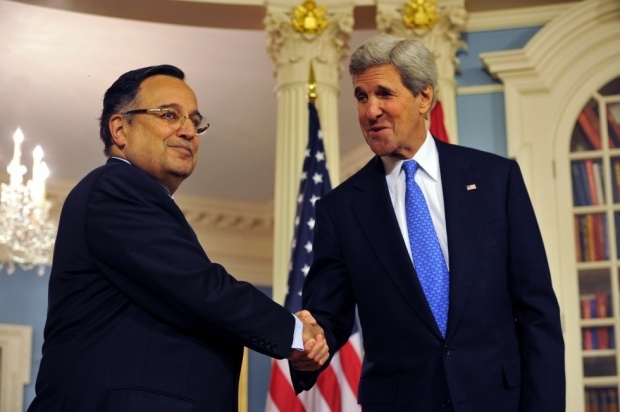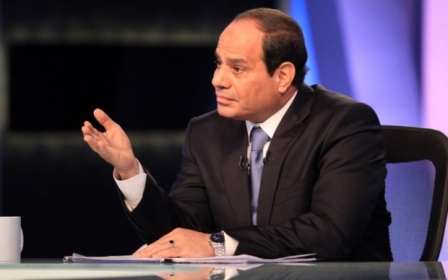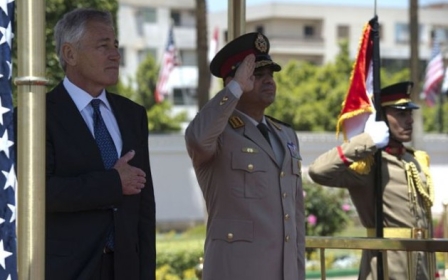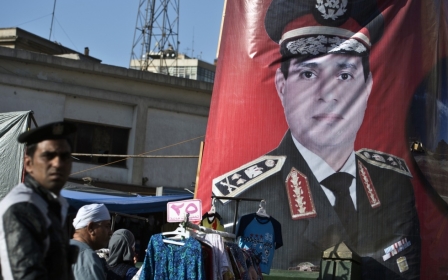US walks a tight rope over Egypt relations

The likely victory of ex-army chief Abdel Fattah al-Sisi in Egypt's presidential election next week will only intensify the foreign policy conundrum that Washington has grappled with since 2011.
On the one hand, there are those who want the United States to honour democratic values and civil liberties; on the other Washington wishes to preserve a partnership which has been pivotal in shaping American policy in the Middle East for 35 years.
Washington has struggled to walk that diplomatic tightrope since 2011, when Egyptian dictator Hosni Mubarak lost power before being replaced by the elected Mohamed Morsi in 2012, who in turn was ousted by the military in July.
Morsi's ouster was followed by a bloody crackdown on his supporters which has drawn condemnation of Egypt's security forces from international human rights groups.
Since Morsi's arrest, more than 1,400 protesters have been killed and an estimated 15,000 members of the former president's Muslim Brotherhood have been thrown into jail.
New MEE newsletter: Jerusalem Dispatch
Sign up to get the latest insights and analysis on Israel-Palestine, alongside Turkey Unpacked and other MEE newsletters
Hundreds have been sentenced to death or given lengthy jail terms after a series of mass trials which have drawn international concern.
"Given the Obama administration’s eagerness to supply Egypt’s military rulers with weapons and economic aid, it was odd indeed that the White House expressed alarm over the court’s ruling when the United Nation did so," wrote Deepak Tripathi, a fellow of the Royal Historical Society.
Hussein Ibish, an expert at the American Task Force on Palestine, said Egypt's legal system presented Washington with its thorniest issue.
"The judiciary is the biggest problem," Ibish said. "These mass trials and mass sentences (...) it looks terrible," he told AFP.
The recent visit to Washington of Egyptian officials including Foreign Minister Nabil Fahmy indicated that Egypt was keen to "remain friends to the United States," Ibish said.
During decades of support for the authoritarian regimes of Anwar Sadat and his successor Mubarak, Washington viewed Egypt as a crucial strategic partner, guaranteeing the Israeli-Egyptian peace treaty while providing military aid to Cairo worth $1.3 billion a year.
Washington partially froze military aid to Egypt in October before lifting the freeze in April to allow the delivery of 10 Apache helicopters for counterterrorism efforts in the unruly Sinai peninsula and some $650 million in aid.
However this tranche of assistance ran into resistance in Congress, where Democratic Senator Patrick Leahy flatly refused to sign off on aid to Egypt citing Cairo's "appalling" justice system.
Amy Hawthorne, a former US State Department official who is now a senior fellow at the Atlantic Council think tank, told AFP that Washington retained "a lot of hesitancy on how to move forward with Egypt."
Middle East Eye delivers independent and unrivalled coverage and analysis of the Middle East, North Africa and beyond. To learn more about republishing this content and the associated fees, please fill out this form. More about MEE can be found here.




